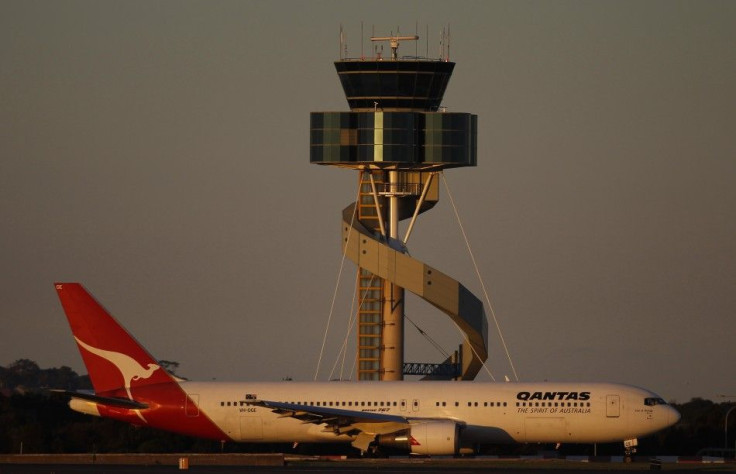No End in Sight to Qantas Airlines Strike

Strikes by three labor unions is costing Qantas Airlines about $15 million (Aus.) per week (or $16 million), due to cancelled flights and declining reservations, ahead of the crucial Christmas holiday season, the company estimates.
The airline is believed to have lost $68 million (Aus.) during the strike’s duration.
Reuters reported that the two-month-long work stoppage has led to the cancellation of more than 600 flights, affecting 70,000 passengers. Australian Associated Press said another 10,000 passengers were stranded on Friday.
Airline workers have been involved in an industrial action against the Australian airline over restructuring plans that are believed to include nearly 1,000 job cuts.
Workers have been striking against Qantas' plans to restructure the airline, a move that is expected to result in almost 1,000 job cuts.
Unions are also asking for a 5 percent salary hike for each year of a three-year contract.
Alan Joyce, the airlines’ chief executive, has warned that costs arising from the strike could rise even higher.
This drawn out and coordinated industrial campaign by these three unions is now having a major impact on Qantas, he said.
$68 million is a significant impact on the company and the costs will continue to rise. Agreeing to the union's unreasonable demands would have a far greater cost on the company, including risking the future of Qantas.”
Qantas first announced its restructuring plan in August, when Joyce said the company would focus more on the vibrant East Asian market, citing that the airline was losing $200 million (Aus.) annually in its international operations.
Qantas wants to establish twp new Asia-based airlines and also plans to order $9 billion for new Airbus airfract.
Tony Sheldon, national secretary for Transport Workers Union Union (TWU), which represents Qantas ground crew workers, told reporters: It means the Asianization of our airline, it affects our national interests and it affects our commercial interests in this country.”
Angus Gluskie, chief investment officer at White Funds Management in Australia told media: [The strike is having a severely detrimental effect on their current position. We want to see a solution whereby a happy outcome is achieved for both the employees and Qantas, but who's to say that fairytale is going to happen? he said.
Joyce told Australian media that he has not asked Prime Minister Julia Gillard to intervene in the labor dispute. Under the Fair Work Act labor laws, the government could force a settlement.
We haven't, (but) the Act is very clear. The prime minister and the government have the ability to intervene, if they so wish, in national interest terms, Joyce told Australian radio.
Rather, Gillard has urged both parties to quickly end the strike.
A general meeting of Qantas shareholders in Sydney on Friday has reportedly been hostile and fractious, with striking workers angrily picketing outside.
According to the Sydney Morning Herald, protesters outside the meeting held up signs saying: Stop the cuts, save the jobs, end corporate greed.
Meanwhile, TWU is threatening continued strikes.
Qantas is quite clear about escalating this industrial dispute and all forms of action, including one-hour stoppages, four-hour stoppages and the potential for 48-hour stoppages, are being contemplated as we speak, TWU’s Sheldon said outside the meeting.
Joyce blamed the union for the potential job losses.
If this continues it will cost jobs, he said. “This can't go on for 12 months. I don't think these union leaders have the interest of the members' jobs, because they have to know that that is going to cause damage to the employment position of a lot of Qantas employees.”
However, the Australian Licensed Aircraft Engineers Association (ALAEA) said it would not strike for the next three weeks, but warned that any future action would depend on pay negotiations.
We're hoping that Qantas comes to the board with some sort of a compromise deal, ALAEA federal secretary Steve Purvinas told reporters.
Captain Richard Woodward, vice president of the Australian and International Pilots Association (AIPA), said member pilots might consider a range of options but not a work stoppage.
I would describe recent media speculation by corporate spin merchants that we're going to strike at Christmas as bovine excrement, Woodward told reporters.
© Copyright IBTimes 2025. All rights reserved.





















